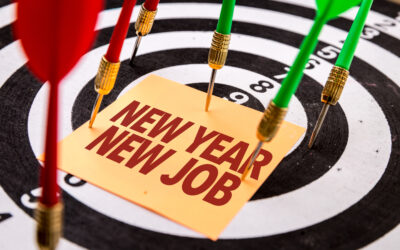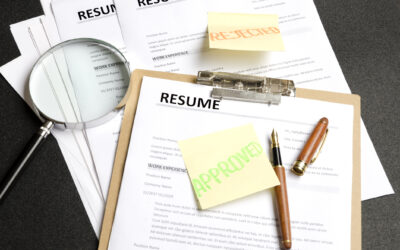When Does the Interview Actually Start? (Spoiler: It’s Earlier Than You Think)

Most people think the interview begins the moment you sit down across from a hiring manager or log into a Zoom meeting. The truth? The interview starts much earlier than that. Every step of your job search—resume, emails, scheduling, conversations, even your thank-you note—is part of how an employer evaluates you.
- Your Resume & Cover Letter: The First Impression
Your resume and cover letter are more than just documents—they’re your first real impression. They tell the story of your skills, career, and potential fit.
- Tailor your materials: Adjust your resume and cover letter to highlight the skills and experience most relevant to the role.
- Check the details: Typos, formatting issues, or inconsistent dates can raise red flags.
- Use a professional email address: Firstname.Lastname@email.com is perfect. A quirky email from college? Not so much.
Why it matters: These materials set expectations and frame how the hiring team sees you before you ever speak to them.
- Scheduling: Yes, That Counts Too
It may feel routine, but even how you handle scheduling is part of the interview.
- Reply promptly when you receive an email or calendar request.
- Be flexible and polite when suggesting times.
- Double-check your availability before confirming—rescheduling later can send the wrong message.
Message you’re sending: You’re respectful of others’ time, organized, and easy to work with—qualities that stand out.
- Your Online Presence: The Silent Interview
Employers often look beyond your application materials. That means your digital footprint matters.
- Review your LinkedIn profile and make sure it’s up to date.
- Google yourself—see what they’ll see.
- Adjust privacy settings or clean up any personal social media posts that may not show you in a professional light.
Why it matters: Employers want to feel confident about your judgment, both on and off the job. A professional online presence backs up the impression you’re making in your application.
- The Interview: The Conversation That Brings It All Together
This is the part everyone prepares for—but it’s just one piece of the process. Remember that a critical piece of preparation is research – review the company’s website and be familiar with the most up to date information.
- For phone or video screens: Test your technology ahead of time, use a quiet space, and make sure your background is distraction-free.
- For in-person meetings: Arrive 10–15 minutes early, bring copies of your resume, and be courteous to everyone you meet along the way—each interaction reflects on you.
- During the interview: Listen actively, keep your responses relevant and on-topic, and show curiosity by asking thoughtful questions that show you have researched the company.
Why it matters: Employers are assessing not only your skills, but also how you communicate, prepare, and connect with others.
- The Thank-You Note: The Follow-Through
Sending a thank-you note is more than a courtesy—it’s part of your interview.
- Send it within 24 hours.
- Personalize it by referencing something specific from the conversation.
- Keep it short, professional, and genuine.
Why it matters: It reinforces your professionalism, shows gratitude, and demonstrates you value the opportunity.
Final Takeaway
Think of the “interview” as a series of moments, not a single event. Your resume, your communication, your online presence, your conversations, and your follow-up all play a part in shaping how an employer sees you. Every interaction is an opportunity to show you’re the right fit.
Recent Posts
- Why the job market feels “broken” (and what’s actually happening)
- 7 Steps to Land Your Dream Job in 2026
- Candidate Fraud: A Rising Risk, A Solvable Challenge
- Should You Stay or Should You Go? Career Moves in a Cooling Job Market
- When Does the Interview Actually Start? (Spoiler: It’s Earlier Than You Think)






